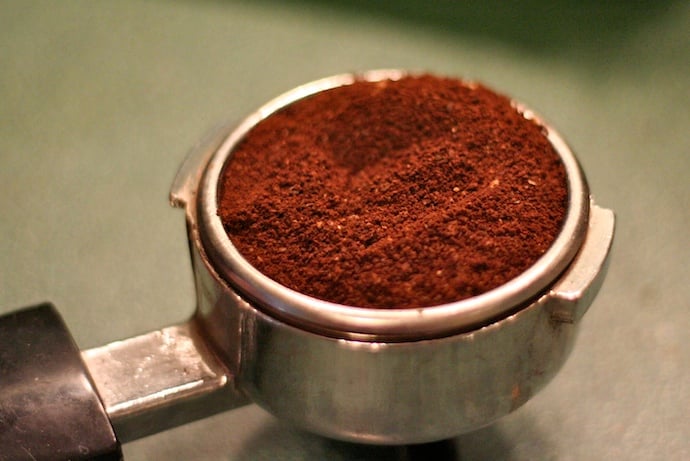Engineers in Australia have developed a technique to make concrete 30% stronger using waste coffee grounds. With an estimated 10 billion kilograms of coffee grounds generated annually worldwide, this technology could significantly reduce the amount of waste that goes to landfills.
The research was led by Dr Rajeev Roychand from RMIT University in Melbourne, who has a research focus on cement concrete. “In Australia, 6.87 million tons of organic waste end up in landfills, occupying valuable land and contributing to 3% of Australia’s greenhouse emissions,” explains Rajeev. “A discussion on finding a solution to this huge amount of organic waste came up over a cup of coffee in our meeting, so our research group started thinking about coffee waste.”
The process involves turning waste coffee grounds into biochar using pyrolysis. The coffee waste is heated to 350 degrees Celsius in the absence of oxygen, producing a lightweight residue similar to charcoal. This biochar can then replace a portion of the sand used to make concrete.
The researchers found that replacing 15% of the sand typically used in concrete with biochar, can make concrete nearly 30% stronger. And, with 50 billion tons of natural sand used in construction projects worldwide each year, not only does this process remove organic waste from landfill, but it also reduces the need for natural sand to be extracted.
Coffee grounds aren’t the first waste products to be tested for their use in concrete.“Waste glass, ceramic waste, mining waste, e-waste, plastic, and rubber waste have been tested [in the past],” says Rajeev. “Our research group was the first in the world to demonstrate medical PPE (Personal Protective Equipment) waste can also improve concrete strength.”
It sounds like an exciting breakthrough, but there’s more work to be done. Rajeev says the group is working on long-term mechanical and durability properties of coffee biochar concrete and has also been approached by councils and construction companies to complete field trials.
“We are also focussing on other forms of organic waste like food waste, agriculture waste, municipal solid waste, and wood waste from council tree trimmings,” says Rajeev. “Our future work will focus on other forms of waste materials.”
Learn more
Coffee Concrete
https://www.rmit.edu.au/news/all-news/2023/aug/coffee-concrete
Coffee Grounds Used to Make Stronger Concrete
Your Coffee Habit Can Build Houses
https://www.fastcompany.com/90604018/now-your-coffee-habit-can-help-build-houses
Recycling of Spent Coffee Grounds
https://www.sciencedirect.com/science/article/abs/pii/S0959652621000573
Could Coffee Grounds Make Concrete Stronger
You Can Build a House with Coffee Chaff
https://sprudge.com/you-can-build-a-house-with-coffee-chaff-now-174871.html
Coffee Chaff and Its Uses
https://mtpak.coffee/2021/06/zero-waste-what-is-chaff-how-can-specialty-roasters-reuse-it/
Coffee Chaff Ideas
https://rountoncoffee.co.uk/blogs/rounton-coffee-blog/coffee-chaff-ideas
Coffee Grounds and Cement Sustainability
https://www.washingtonpost.com/world/2023/09/28/australia-coffee-grounds-cement-sustainability/
Feed Your Garden with Coffee Chaff
https://detourcoffee.com/blogs/news/feed-your-garden-with-coffee-chaff
What Can You Do with Coffee Chaff
https://rountoncoffee.co.uk/blogs/rounton-coffee-blog/coffee-chaff-ideas
Ford Uses Coffee Chaff for Car Parts
https://www.businessinsider.com/ford-mcdonalds-coffee-bean-chaff-car-parts-2019-12

